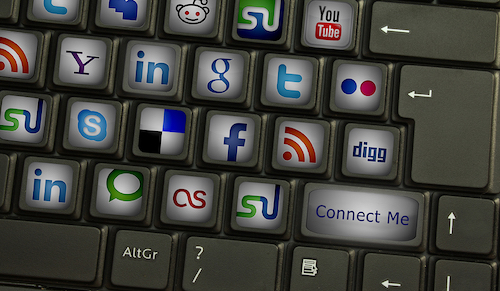 Scrolling through social media can be an experience fraught with mixed emotions.
Scrolling through social media can be an experience fraught with mixed emotions.
Littered across social networks are posts about exotic holidays, fancy new cars, promotions, new babies, fun parties, healthy cooking successes and new home purchases.
It’s no secret that people tend to post the best parts of their life to social media, rather than the behind the scenes mess, but that doesn’t stop others from feeling jealous or even inferior due to what they see in their online social networks.
Now, researchers from Germany have found people who use social networks in a passive way by not posting themselves are more likely to compare themselves to others and are more at risk of developing depressive symptoms.
“We found that higher passive social media use leads to a higher social comparison orientation with respect to ability,” Dr. Phillip Ozimek, lead author of the study and a member of the Faculty of Psychology at Ruhr-Universität Bochum told Theravive.
“That is, when I tend to be a more passive FB user, I am more likely to have a need for those comparisons with other users' profiles. This higher social comparison orientation leads to lower self-esteem and a lower self-esteem may trigger higher depressive tendencies,” he said.
Prior research on social media and depression had produced mixed results. Some studies show a positive effect of social media use, others a negative one and others still no effect whatsoever.
To clarify whether social media could cause depression, the researchers conducted multiple studies. In the first, they enlisted three groups of test subjects; two of the groups were asked to write about the first five people they saw either on their Facebook wall or on a staff website. The third group was asked to skip this part of the study. All three groups then completed a survey about their self-esteem.
The researchers found that by seeing social information on the internet (that is often selective and only shows positive aspects of life) led to lower self-esteem among the study participants.
In the second study, the researchers examined the long term impacts of social media use using a questionnaire. They interviewed more than 800 people about their Facebook use, their self-esteem, how often they compared themselves to others and how often they experienced depressive symptoms.
The researchers discovered a positive correlation between using Facebook in a passive way and depressive symptoms. The researchers say this is likely because those who use Facebook passively have a heightened need to compare their abilities to others on social networks.
“Passive use means that you do not use Facebook to share your positive experiences with the world but that you use Facebook to see the positive experiences of others. So, maybe you are sitting in your office and it is raining outside. In the same moment, you are logged in on Facebook getting the feeling that nearly everyone else has a beautiful day, is on vacation and so on. Passive users compare their life with the idealized lives of the others. And that makes us unhappy,” Dr. Ozimek said.
He argues that those who experience this day after day may be at greater risk for depressive tendencies in the long term.
In a third study, the researchers replicated the questionnaire study with reference to professional social network, Xing. The researchers noted that although a user profile on such a platform is still skewed in a positive fashion, it is likely more realistic in order for people to come across as genuine as possible. The researchers found that people’s self-esteem was influenced in the same way as the Facebook study.
Ozimek says that at the heart of why social networks can make users feel bad about themselves is the idea of social comparisons.
“Normally, when we compare ourselves with others, we use our actual-self. The problem on social media is, that the presented profiles do not reflect user’s actual selves but their idealized selves,” he told Theravive.
“The comparison of your actual self with those thousands of idealized selves of the other Facebook users lead to the feeling that you are not good enough. Your self-esteem decreases,” he said.
Overall, the researchers conclude it is not simply the use of social networks that either leads to or can be linked with depression, but rather the type of use and other preconditions.
Those who use such platforms passively tend to socially compare themselves with others and have a negative experience. This in turn impacts their self esteem.
Ozimek says it is important for users of social networks to remember that the impression of a perfect life that others portray online is often far from the truth.
His advice to avoid potential negative impacts of social media? Don’t use it so much.
“Be more active! And the best thing would be to reduce your social media use. Go out! Live your life with other people!”
Elizabeth Pratt is a medical journalist and producer. Her work has appeared on Healthline, The Huffington Post, Fox News, The Australian Broadcasting Corporation, The Sydney Morning Herald, News.com.au, Escape, The Cusp and Skyscanner. You can read more of her articles here. Or learn more about Elizabeth and contact her via her LinkedIn and Twitter profiles.